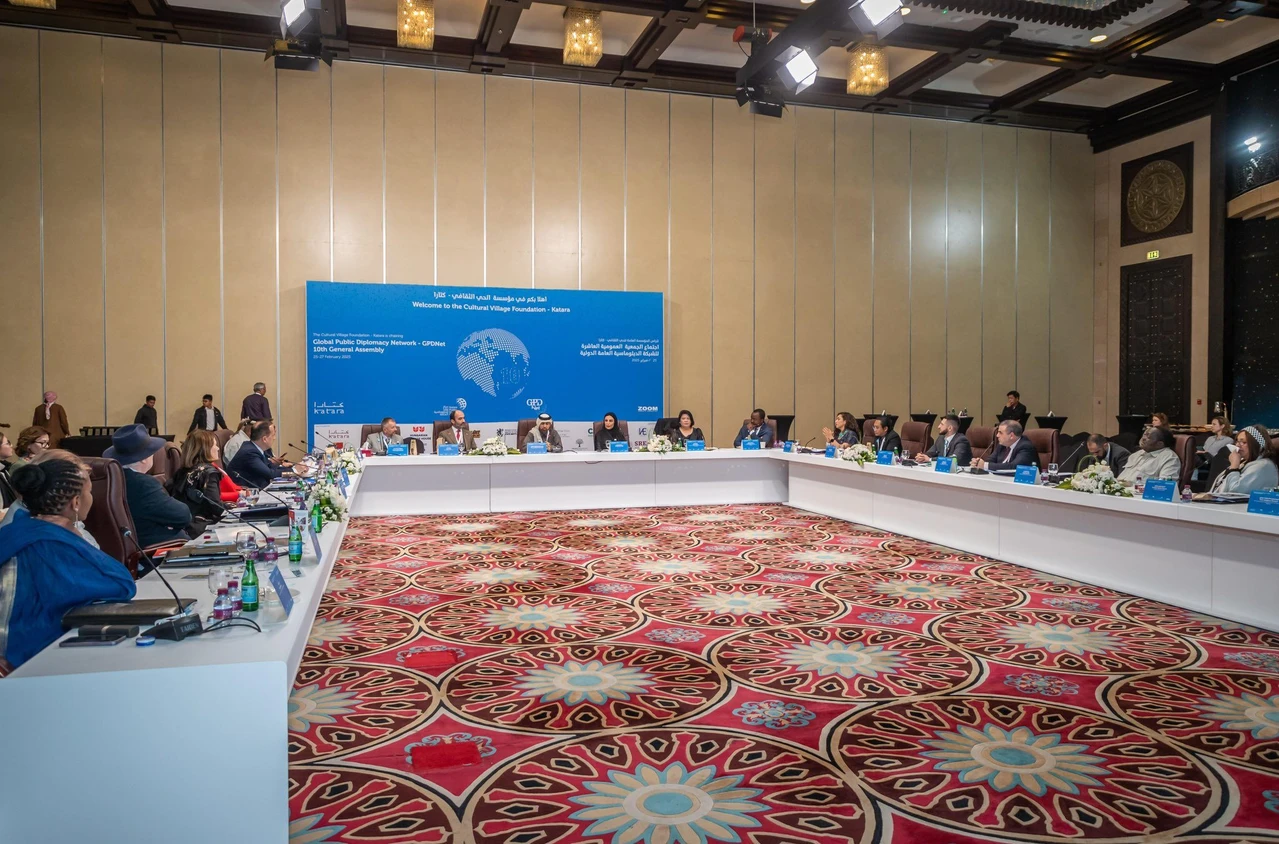Ambassador Terence A. Todman’s diplomatic skills
Diplomacy skills are not just any skills. They are the specific skills that diplomats use to successfully carry out their duties. To help the public demystify the skills of diplomacy, the National Museum of American Diplomacy categorizes these skills as informational, relational, and operational. One of the nine most important diplomatic skills in Operational is advocacy.
In the history of the United States, few diplomats have more than embodied the skill of advocacy Ambassador Terence A. Todman.
The skills of diplomacy are nine skills categorized as informational, relational, and operational. A diplomat uses all of these skills in establishing and maintaining international relationships on behalf of the United States.
Ambassador Terence A. Todman: Advocating for civil rights at home and abroad
Ambassador Terence Todman (1926–2014) was one of the first black Americans to be named a career ambassador, a presidential classification for outstanding service in the U.S. foreign service. He was the first African American to serve as Assistant Secretary for Western Hemisphere Affairs. Todman was also ambassador to Chad, Guinea, Costa Rica, Spain, Denmark and Argentina.
Ambassador Todman is known for much more than his illustrious career in foreign service. His passionate commitment to human rights, both in the United States and abroad, sets him apart from many of his foreign service colleagues.
In a statement, Secretary of State John Kerry said Mr Todman was “known for his outspokenness and advocacy for equality at a time of segregation when few minorities were to be found at any level in the State Department”.
“I was considered a troublemaker,” Ambassador Terence A. Todman said of his time at the State Department, “and that was fine.”
advocating desegregation
In 1957, Todman began his Foreign Service Officer training at the Foreign Service Institute (FSI).
The FSI campus was located across the Potomac River from Washington in Rosslyn, Virginia. At this time, Virginia practiced racial segregation. These state laws prohibited blacks from dining in non-segregated restaurants or using the same public amenities as whites. As a result, Todman and his black classmates were unable to have lunch with their white colleagues at FSI’s neighboring restaurant.
Todman pleaded for a solution. He pursued the issue within the department until it reached the office of the Undersecretary for Management. First, the Department told Todman that the federal government could not intervene in state laws.
As a result of Todman’s efforts, the State Department agreed to lease half of the neighboring restaurant and erect a partition between federal employees and the public. While the kitchen and staff served all customers, this lease created a non-separated area for black and white colleagues to dine together.
On February 1, 2022, on the anniversary of the Greensboro sit-in, the US State Department honored Ambassador Todman’s legacy by renaming the cafeteria in the Harry S. Truman Building the Terence A. Todman Cafeteria.
Plea for an end to the “Negro Circle”
Todman’s first ambassadorial post was to Chad, which he said was “not on the left” because of his diplomatic training and expertise. At the time, most black senior diplomats were transferred to African or Caribbean posts simply because of their race. This practice became known as the “Negro Circuit”. Ambassador Todman spoke openly about this blatant racial discrimination.
“I have insisted all along, and I continue to insist, that Foreign Service officials, whoever they are, should have the opportunity and ability to serve anywhere in the world.” – Ambassador Todman, Interview 1995.
Todman felt trapped by a foreign service system that assigned black foreign service officials to only a handful of posts in Africa or the Caribbean. “The Negro Circuit,” as it became known, was something he disliked. Todman called it “a ridiculous shape”.
A natural linguist, Todman has mastered many languages throughout his career, including Japanese, Hindi, Arabic and Spanish. He was well qualified to represent the United States worldwide. Because many black Foreign Service officers possessed similar qualifications, he campaigned not only for himself but also for his African-American colleagues.
After serving as ambassador to Chad and then Guinea, he threatened to resign if he was not given the opportunity to serve in other parts of the world. “I was upset about it then, and I still am. And the United States still does. We haven’t learned anything over the years,” Todman said in 1995.
In 1974 he was appointed ambassador to Costa Rica, becoming the first black American ambassador to a Latin American country.
Standing up for the people of Latin America

Ambassador Todman (left) stands with President George HW Bush (center) in Buenos Aires, Argentina, in 1990 to greet the diplomatic corps. Photo courtesy of the Bush Presidential Library.
Todman became the State Department’s chief Latin American strategist in the Carter administration. He walked a fine line between the Carter White House’s aggressive human rights advocacy and the practicality of building viable relationships with the accused countries.
When he took office in the spring of 1977, Brazil, Argentina and several other Latin American countries had turned down American aid because the United States had criticized its human rights record. He argued that it was wrong to punish an entire country because its rulers had misbehaved.
“I have always insisted that value for human rights, the human person, for the well-being of the individual, must be an integral part of everything we do, that one should not separate human rights from other activities, like when it would be something to deal with yourself. But you made sure that it was built into everything you did, that it was part of a value system. That was extremely important to me. The other thing was making sure we didn’t add to the suffering of poor, suffering people to get at the despicable leaders. That was critical. Because there were many people who felt that if the leader of a certain country did not behave properly, then the whole country was punished.”
In Paraguay, for example, people died from waterborne diseases. Policymakers in Washington feared that their leader, General Alfredo Stroessner, would take the credit if the United States provided assistance. Todman convinced US policymakers that cleaning the water was more important to saving the Paraguayans.

Ambassador Mari-Luci Jaramillo (second from right) and Secretary of State Todman (right) with staff from the US Embassy in Honduras at the Ambassador’s residence. Photo courtesy of the National Hispanic Cultural Center Library and Archives.
In February 1978 he gave a speech urging the United States to be patient with human rights improvements in Latin America. The New York Times called the speech “a direct attack on the State Department’s human rights activists.”
Despite this backlash, President Jimmy Carter appointed Todman ambassador to Spain, one of the most prestigious diplomatic posts and one usually given to political appointees. He was the first black field officer to lead one of the most important missions.
“I believe in pressure, shouting, cajoling to do what is necessary to get the results you set and want to get. And sometimes this is done by stepping onto a public platform; sometimes it’s done by walking in and quietly twisting someone’s arms. The methods vary depending on the case.”
Sources
Terence Todman, a 6-nation envoy, dead at 88 – The New York Times
Being Black in a Lily White State Department | Association for Diplomatic Studies & Training
Library of Congress – Interview with Terence A. Todman
Michael Krenn, Black Diplomacy: African Americans and the State Department, 1945-1969 (New York and London: Routledge, 1999).
Allison Blakely, Charles Stith, Joshua C. Yesnowitz, and Linda Heywood (eds.), African Americans in US Foreign Policy: From the Frederick Douglass Era to the Obama Age (Chicago: University of Illinois Press, 2015).
Office of the Historian of the US Department of State



